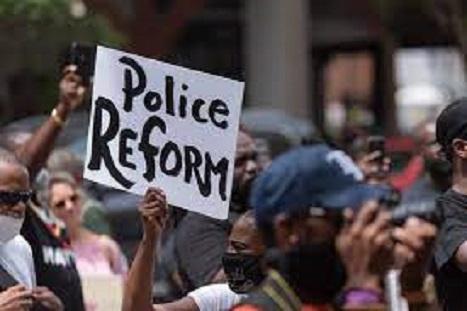Africa-Press – Lesotho. THE decision by the government to rope in the United States’ Federal Bureau of Investigations (FBI) to train Lesotho’s police on biometric investigations is the right way to go.
The US ambassador to Lesotho, Maria Brewer, said the whole idea is to build “a more robust, capable, and professional law enforcement community . . . that offers a safer and more secure environment to its citizens”.
That is precisely what Lesotho needs – a robust, capable and professional police service. And that is what Lesotho has lacked for decades. Instead, what we have had for years is a police service that is known for its brutal tactics in enforcing the law.
The result is that the Lesotho Mounted Police Service (LMPS) is one of the least trusted government institutions in the country. At least 19 people die at the hands of the police in Lesotho every year, according to the World Population Review.
That is too huge a figure. At the core of the police’s problems is a lack of proper training and failed recruitment strategies. The result is an inefficient institution that is woefully ill-equipped to fight crime.
We all know though that the police need technical skills to fight crime. To cope with the challenges, the police will need to modernise their training programmes to ensure we have a sophisticated police that is able to handle modern policing challenges.
We hope the US programme will address these challenges. While the government of Lesotho is to be commended for soliciting such help from the FBI, it is also clear that we are dealing with a deep, systemic crisis within the police where the use of torture has become endemic.
The police will need to weed out rogue elements who cannot move with the times. It has become pretty urgent for the police to embark on such a modernisation programme.
While there have been attempts to reform the police in the past, progress has been extremely slow. The result has been that some sections of our police have remained thoroughly un-reformed.
The police still rely on the same, old, discredited methods of using torture to extract confessions from suspects. That must end. Such acts have damaged the reputation of the Lesotho Mounted Police Service.
We know that for the police to be effective, they will need the cooperation and support of the communities in which they operate. Without the element of trust between the police and communities, the police will always find it difficult to conduct their work efficiently.
To stop the torture of suspects, some have proposed that rogue police officers must be held personally accountable for their acts of aggression. That, sadly, has not worked in practice.
Instead, what we have seen was the government being forced to pay off huge sums of money to compensate victims of torture. That too must change. Rogue police officers must be held personally accountable when they cross the line.
It must be made clear to such officers what is lawful and what is not. They cannot continue to hide behind the cover of national duty while perpetrating criminal acts.
Sadly, while the FBI is engaged in such noble training programme that has not stopped rogue police officers to continue terrorising suspects in the name of enforcing the law. This should put into context the mountain of challenges the government faces if it is to reform our police successfully.
For More News And Analysis About Lesotho Follow Africa-Press






